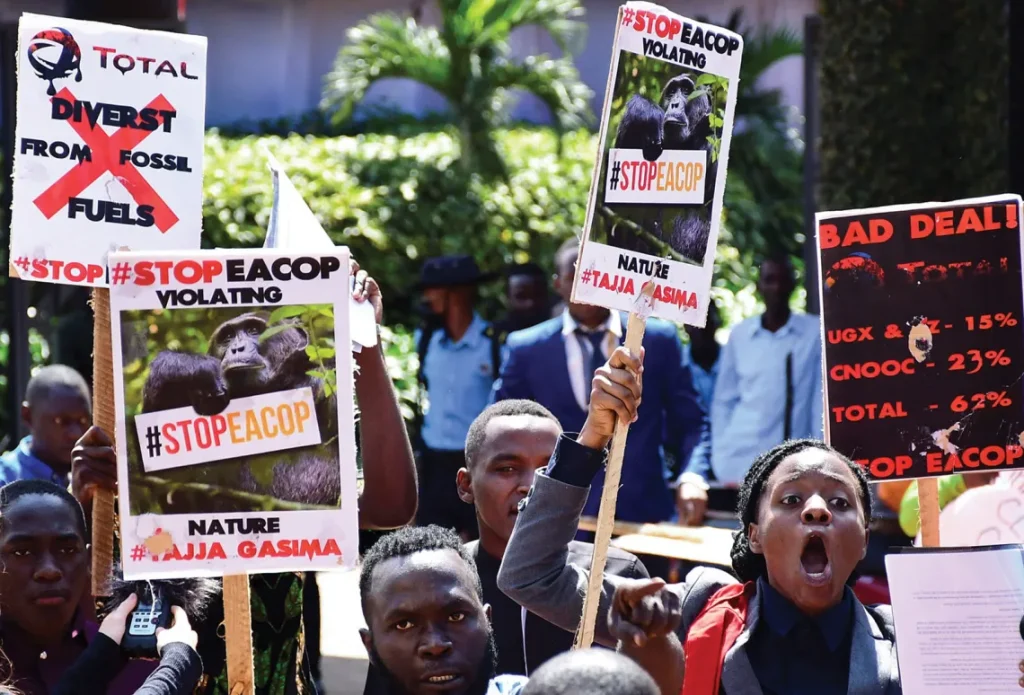International human rights groups have accused TotalEnergies and China’s CNOOC of perpetrating serious human rights violations in a $10 billion oil project spanning Uganda and Tanzania, according to a report released Thursday.
The project, which includes oil drilling in Uganda’s Lake Albert region and the construction of a 1,443-kilometre (900-mile) heated pipeline to Tanzania’s Indian Ocean port of Tanga, has long been contested by environmentalists and human rights advocates.
In a 100-page report, the International Federation for Human Rights (FIDH), Civic Response on Environment and Development (CRED), and Lawyers Without Borders outlined abuses including forced evictions, land rights violations, and corruption.
The report detailed harassment of fishing communities by Ugandan troops, with incidents of sexual and gender-based violence reportedly committed by soldiers and company personnel. The Kingfisher oil fields were identified as a hotspot for these violations, with residents living in a high level of fear.

Activists opposing the project, particularly in Kampala, have faced escalating repression. The report documented at least 96 arrests between May and December, alongside reports of unlawful detentions, torture, and break-ins targeting activists.
Ugandan government spokesperson Chris Baryomunsi dismissed the report as a smear campaign and described the allegations as ridiculous and unfounded. He urged anyone with credible evidence to present it to relevant authorities but insisted the project would continue.
TotalEnergies also refuted the claims, stating its strongest disagreement with the report. The company highlighted its transparency and commitment to human rights in its Uganda operations.
The report highlighted the displacement of 12,000 families along the pipeline route and hundreds of households near Lake Albert. One of the most severe incidents occurred in May 2020 when 769 people in the villages of Kiina and Kyabasambu were reportedly evicted at gunpoint without compensation.
NGOs argue these evictions breach both international and constitutional law.
Communities living near the oil sites have also reported dust, noise, and light pollution, along with concerns over oil spills. The report warned of “serious threats to the environment and public health,” particularly in the catchment areas of Lake Albert and Lake Victoria, which support tens of thousands of people across East Africa.
The project, championed by Uganda’s long-standing President Yoweri Museveni, has faced increasing international criticism for its environmental and social impacts. While the Ugandan government and companies involved defend the initiative as a path to economic development, critics argue that it jeopardises local communities and ecosystems.


